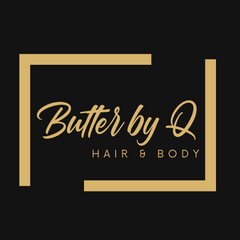5 Pioneers Who Helped Create the Black Cosmetics & Skincare Industry

Black is courage in the face of challenges. It’s perseverance under the pressure of seemingly insurmountable obstacles. And Black is beautiful! Historically, Black and African American entrepreneurs, pioneers, activists, and philanthropists have embodied these principles with surgical precision. While we may be familiar with many of our courageous forefathers and foremothers, the Black contribution to the skincare and beauty industry is often overlooked.
This Black History Month, Butter by Q shines a light on five different skincare and beauty pioneers. Let’s take a closer look at five Black trailblazers in cosmetics, cosmetology, and skin care that have helped redefine our definition and expectation of beauty.
Anthony Overton Defines Beauty (March 21, 1865 - July 2, 1946)

Born into slavery in 1865 in Monroe, Louisiana, Anthony Overton emerged from the Antebellum south to become an accomplished lawyer and businessman. As an entrepreneur, he founded several companies in the early 1900s, including the Overton Hygienic Manufacturing Company.
The First Successful Cosmetic Product for Black Women

Spotting the need and opportunity, he used the Overton Hygienic Manufacturing Company to create gentle, non-irritating cosmetics for the complexions of Black women. One groundbreaking product was the “High Brown Face Powder,” which was one of the first successful cosmetics products for Black women. He went on to establish a highly-diverse conglomerate of successful organizations, including:
- The Douglass National Bank
- The Great Northern Realty Company,
- Victory Life Insurance Company,
- And other businesses.
Overton’s contribution to the Black cosmetics industry blazed a path for several other entrepreneurs.
Sarah Breedlove (December 23, 1867 - May 25, 1919)

No list of Black beauty pioneers would be relevant without mentioning the great Sara Breedlove. Born to sharecroppers in 1867 on the same plantation as her enslaved parents, Breedlove was a successful entrepreneur, philanthropist, and activist who etched her name in American history.
Like many other Black entrepreneurs, Breedlove’s innovation was driven by a need to remedy her own problem — severe dandruff. Her dandruff was believed to be caused by scalp problems from harsh products and skin disorders. In 1905, Sarah moved to Denver as a sales agent for Annie Turnbo Malone.
Madam C.J. Walker Is Born

After marrying Charles Joseph Walker and changing her name to “Madam” C.J. Walker, she began selling Madam Walker’s Wonderful Hair Grower. The Wonderful Hair Grower was a scalp conditioning and healing formula that helped women with textured hair manage and maintain healthy scalps.
To promote her products, she went door to door in Black communities throughout the South and Southeast. She launched brilliant sales and marketing strategies, such as demonstrating her creations in various lodges and churches.

Driven by success, Walker moved to Pittsburgh and opened the Lelia College to train her own army of hair culturists in 1908. By 1910, she had built a factory, a manicure and hair salon, and opened another training school. She quickly grabbed national headlines across the Black press when she donated $1,000 to the development of a “colored” YMCA.
Madam C.J. Walker operated one of the most successful black-owned businesses and became the first-ever self-made female millionaire in the United States. However, her contributions to the beauty and cosmetics industries are just the beginning. She was also a powerful and dynamic political and social activist and philanthropist.
Annie Turnbo Malone (August 9, 1869 - May 10, 1957)

Before there was Madam C.J. Walker, Annie Malone blazed the trail and showed her the way. Orphaned at a very young age, Annie Malone was born in 1869 in Metropolis, Illinois to previously enslaved parents. At a very young age, Malone understood that grooming and appearance represented much more for African American women. She also understood how Black women, at the time, struggled to find the resources to visit a hair salon, which led to scalp infections and other problems.

During the late 19th century, Malone began developing and manufacturing a line of special oils, non-damaging hair straighteners, and hair stimulation products for Black women. Her products represented a way to chemically straighten textured hair without damaging the scalp and hair follicles. Laying the framework for Madam C.J. Walker’s success, Turnbo went door to door in Black communities selling her products. Eventually, her products began to spread like wildfire to transform hair-care practices for all Black people.

Malone perfected her marketing by giving away free hair treatments, holding news conferences, and recruiting other women to sell her products— including Madam C.J. Walker. Her efforts materialized into success when she opened her first shop in 1902 in St. Louis. This prompted her to copyright her products under the name Poro to prevent counterfeit versions.
Due to the success of Poro, Malone established Poro College in 1918. Poro College was a thriving center and cosmetology school with dining and meeting rooms, an auditorium, retail locations that sold Poro products, and much more. Through Poro College and franchisement, Malone developed jobs for nearly 75,000 women throughout the Americas, Philippines, and Africa.
Theodore K Lawless (1892-1971)

Born in 1892 in Louisiana, Dr. Theodore Lawless rose to prominence as a dermatologist, medical researcher, and philanthropist. He attended Talladega College and studied medicine at the University of Kansas. In 1919, Lawless completed his MD at Northwestern and earned an MS in 1920. After specializing in dermatology in Boston, Paris, New York, and Vienna, he returned to Chicago in 1924 and started a thriving dermatology practice.
He became an instructor and research fellow at Northwestern University Medical School — where he helped establish the first clinical laboratory for dermatology and the university’s first medical laboratory. Lawless was the first Black member of Chicago’s Board of Health and became known for his groundbreaking research into the treatment of skin diseases and damaged skin, such as atopic dermatitis or eczema.
The Unbeweavable Christina Jenkins (December 25, 1920 - 2003)

Every woman loves a good weave. They are a quick way to protect your natural hair and prevent overprocessing. Most importantly, a good weave looks amazing! You can thank Christina Jenkins for that. Born in 1920 on Christmas Day in Louisiana, Christina Jenkins graduated from Leland College near Baton Rouge in 1943. She continued to hone her craft while working at a wig manufacturer in Chicago.
By 1952, Christina Jenkins was issued a patent for her “HairWeev” technique, which is still employed by millions of women and men today. Prior to Jenkins’ genius, weaves were very temporary and attached to natural hair with pins. Breaking the mold, Jenkins’ method was a longer-term solution for hair weaves.
Simply put, her brilliance changed the game for Black women and laid the foundation for today’s modern hair weave methods. Jenkins continued to own and operate Christina’s HairWeeve Penthouse Salon in Cleveland until 1993. She went on to teach her hair-weaving techniques at shows throughout Europe.
Support Black-Owned Hair & Skin Care Companies

Throughout American history, innovation has been the fruit of desperation. Whether it was the gas mask, folding chair, or the ability to make a dollar stretch in ways unbeknownst to man, Black folks have thrived and innovated under pressure. It was this pressure and mother's love that created Butter by Q.
After struggling to find a safe and natural treatment for their infant’s eczema, Butter by Q’s founders — Quiana and Elliott — decided to create their own formula. Most prescription-strength steroids would bleach the child’s skin, sting, or do nothing. Simultaneously, many over-the-counter eczema products included chemicals, dyes, and additives that would cause further irritation.

Based on scientific research and studies, Elliott and Quiana combined Mother Nature's most valuable resources to create a solution that helped treat and prevent eczema flare-ups in their child. Today, Butter by Q has grown to offer an entire lineup of safe, all-natural, plant-based products crafted from premium, skin-nourishing ingredients.


